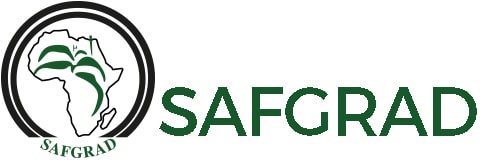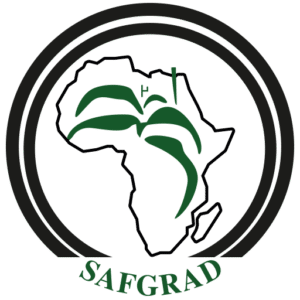1. BACKGROUND
The United Nation Convention to Combat Desertification (UNCCD) was established to enable countries address desertification, land degradation and drought which are inhibiting the many global and regional targets with regards to sustainable development. Therefore, the UNCCD has a direct and essential role to mitigate the hydrological and social –economic impacts of drought that affect Agriculture and other sectors of the economy over a long-term. Through the New Strategic Framework (2018 – 2030) the UNCCD has increased its attention to drought. One of the Five Strategic Objectives focuses on drought with the aim to mitigate, adopt to and manage the effects of drought in order to enhance the resilience of vulnerable populations and ecosystems.
Parties at the fourteenth session of the Conference of the Parties adopted decision 23/COP 14 on policy advocacy on drought. Through this decision, Parties decided to establish an Intergovernmental Working Group (IWG) on effective policy and implementation measures for addressing drought under the UNCCD. The mandate of the IWG is to take stock of and review the existing policy, implementation and institutional coordination frameworks, including partnerships, on drought preparedness and response and to consider options for appropriate policy, advocacy and implementation measures at all levels for addressing drought effectively under the Convention, in the context of a wider holistic and integrated approach to disaster risk reduction and enhancing the resilience of communities and ecosystems. Furthermore, Parties international organizations and stakeholders were also requested to submit relevant information on: (a) policy, implementation and institutional coordination frameworks and implementation measures for addressing drought under the Convention; and (b) barriers, challenges, opportunities and implementation measures as well as preparing for, responding to, and recovering from drought.
At the regional level, the African Union Commission and its Regional Economic Communities have developed drought related frameworks aimed at mitigating the negative impacts of drought. One of the key orientations for addressing drought in Africa is the developed Strategic Framework for Drought Risk Management and Enhancing Resilience in Africa which was adopted by the region during the First African Conference on Drought in Windhoek, Namibia in 2016. In addition, this framework was also endorsed by the African Ministers through the Windhoek Declaration for Enhancing Resilience to Drought in Africa. The declaration was also adopted by the Africa Union relevant structures for implementation
Prior to the adoption of the above-mentioned framework, the African Union Assembly has manifested its commitment to addressing drought in a holistic manner through the declarations and decisions on strengthening the implementation of desertification and drought related activities and strengthening the African Union’s leadership and participation in the UNCCD processes at regional and global levels.
2. RATIONALE FOR A LEGALLY BINDING PROTOCOL
Africa’s Agriculture and other social and economic sectors are greatly impacted by drought which curtails economic growth and increases food insecurity, poverty and forced migration in the region. A region wide meeting on Drought held in Namibia emphasized the need for a strong Global policy instrument (for refer to what was endorsed by ministers, Windhoek declaration) effective action to mitigate drought impacts. The Africa Union Commission has been instrumental in facilitating regional processes on Drought including support for the Drought week and a proposal for an African Drought Protocol.
Africa takes special interest in the work of IWG on Drought process and recognizes the apparent need for a legally binding instrument to ensure effective policy, implementation and institutional coordination, including partnerships, on drought preparedness and response under the UNCCD. Such instrument should guide and facilitate synergies among actors at local, provincial, national, regional and global levels as well as linkages within and between different governmental levels (like sectoral ministries) with a view to effectively mobilize resources, technologies and capacities to increase resilience of populations and ecosystems to drought impacts.
It is therefore important that for the African continent to champion the global call for the UNCCD to have a legally binding protocol on drought which will lead to enhanced mobilization of the necessary financial resources and partnership at global level to support countries, especially in Africa and other developing parts of the world.
It is against this background that there is a and need to enhance implementation of Strategic Framework for Drought Risk Management and Enhancing Resilience in Africa, the African Union Commission and African Union SAFGRAD, after receiving request for technical assistance from the African Group of negotiators for the UNCCD to provide technical support to African negotiators to prepare an African common position for a legally binding protocol on Drought in the context of the UNCCD .
3. OBJECTIVES OF THE SUPPORT
1.Using the Strategic Framework for Drought Risk Management and Enhancing Resilience in Africa and other regional drought frameworks baseline documents and taking into account the interim report of IWG, to prepare an African Common position with strong justifications to serve as a discussion document for a legally binding instrument on drought within the context of the UNCCD.
2.To undertake research and evidence-based information gathering needed to support proposals and positions of the African group on Drought policy at the IWG and COP 15.
3.To support African Group of negotiators and other relevant stakeholders and partners to discuss and adopt the draft proposal prior to COP 15.
4.To support the processes of endorsement of the draft proposal by the relevant organs of the African Union.
4. EXPECTED OUTCOMES
- A well justified negotiation proposal for a legally binding protocol on drought in the framework of the UNCCD.
- Provision of adequate database and evidence-based information and references justifying Africa Group positions onpolicy particularly a legally binding protocol on drought made available
- A draft resolution by the relevant organs for the African Union calling for a legally binding protocol on drought within the framework of the UNCCD.
- Increased support and consensus for the African positions on drought policy particularly a legally binding instrument on drought among African Parties and with other regions and stakeholders.
5. CONSULTANCY
To deliver on the above objectives and expected outputs, the African Union-SAFGRAD is seeking a team of consultants to develop a draft African common position on the need for a legally binding protocol on drought within the framework of the UNCCD. Three (03) consultants with main areas of expertise including (01) Drought (early warning, monitoring, vulnerability/Desertification) expert, (2)Law and Land tenure (socioeconomic dimension) expert and (03) expert mastering of the UN and AU process and protocols. A lead consultant to be selected among the three(03) will be supervising the two (02) consultants to undertake the followings tasks described below. The Lead consultant will be responsible for the submission of the reports:
SPECIFIC TASKS
- To undertake extensive consultations with all relevant stakeholders, conduct research and information gathering to develop an African common position with strong justifications for a legally binding instrument on Drought under the UNCCD framework.
- Prepare a well justifiedAfrica common position for a legally binding instrument on drought at global leve.
- Organize virtual meetings for African experts, negotiators and other stakeholders to gather inputs towards the finalization of African Common Position for a legally binding draft instrument on drought
- Support preparation and presentation to the relevant AU processes recommendations to endorse a proposal for an African Common Position for a legally binding Protocol on Drought in the framework of the UNCCD before COP 15.
6. Qualifications/Experience
A. Lead consultant
The lead consultant is responsible for the overall development of the document with the support of the other two consultants. The lead consultant is expected to provide regular updates to the Chair of the AGN and members of the IWG for their guidance and input into the draft document.
The lead consultant should possess a minimum of master degree in agriculture, rural development, environmental management, environment law, economic development or any other relevant qualifications backed by not less than 10 years of working experience at senior level in government, NGOs or International organizations or any relevant qualifications. He/she must present evidence of having done successfully a similar task in the past.
B. Consultants
Consultant 1:
Will support the lead consultant in developing the draft document. He/she must have at least master degree in agriculture, rural development, environmental management, environment law, or economic development or any other relevant qualifications with a minimum of five year-working experience at a senior level especially in rural development policies. Strong experience in land tenure, disaster risk reduction and monitoring and evaluation will be an advantage.
Consultant 2:
Will support the lead consultant in developing the draft document. He/she must have at least master’s degree in agriculture, rural development, and environmental management or any other relevant qualifications with a minimum of five year-working experience at a senior level especially in area of environmental policies. He/she must have a good working experience of international environmental policies and familiar with the working methods of international organizations (AU and UN)
Language requirement: Proficiency in one of the AU working languages. Knowledge of one other working languages would be an added advantage.
7. Deliverables
A well written document addressing all the various tasks and expected outcome listed in the scope of the work in a logical sequence determined by the consultants. The final document should highlight key recommendations to be addressed to Policy makers at continental level. The document shall be submitted in appropriate software and addressed to the Coordinator of AU-SAFGRAD. The consultants should seek technical guidance and backstopping from the Chair of African Group of Negotiators and and members of IWG when necessary.
Due to the prevailing COVID-19 pandemic, all data collection, consultations and validation meetings will be done via desk review and virtual meetings.
8. Expected outputs
1. The assignment will take eight weeks from the signing of the consultancy contract.
2. It is expected that the consultants will submit the following reports and updates to AU-SAFGRAD at the specified periods as agreed on between the two parties during the full duration of the assignment:
(i) Inception Report:
This report is to be submitted to AU-SAFGRAD and one week after commencement of the assignment (signing of the contract). The report shall contain the approach and methodology that the consultants will apply in the execution of the assignment and a detailed work plan specifying key activities to be performed covering the duration of the assignment.
(ii) Draft Report:
This report will be submitted 6 weeks after the submission of the Inception Report. It will provide an update of the key findings based largely on literature review and possibly interviews.
(iii) Final Report:
This will be submitted at the end of the assignment period and it would have integrated all comments received on the draft report.
9. Remuneration
The Consultants will be paid Professional fee as lump sum of twenty six thousand USD (26,000 USD) dispatch as USD 10,000 to the Lead Consultant and USD 8,000 to each of the two others consultants as follows: 30% after submission of the inception report and approved by the Coordinator of AU-SAFGRAD, 40% after submission the draft report and Approved by the Coordinator of AU-SAFGRAD and 30% after submission of the final Report and approved by the Coordinator of AU-SAFGRAD.
10. Reporting
All communication and reports regarding the consultancy should be channeled through the Coordinator, AU-SAFGRAD.
11. Application
Potential candidates are invited to apply by sending letter of Interest and CV at AU-SAFGRAD office through the following address: 261, rue de la Culture BP: 1783 Ouagadougou, Burkina Faso Email: SayahE@africa-union.org with copy to koutoum@africa-union.org
For any urgent clarification, please contact these numbers Tel: +22625306071 or 22678855122.
The deadline for application is: June 25, 2021 at 16 GMT


















